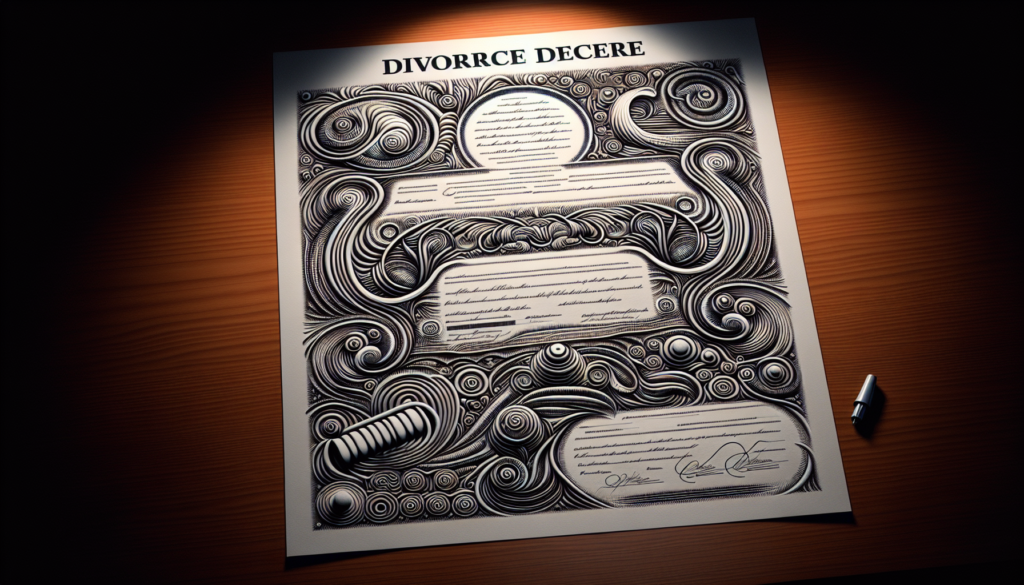A divorce decree, also known as “what is a divorce decree,” is a legal document that officially ends a marriage and outlines the terms of the divorce. Signed by a judge, it includes details on property division, child custody, support arrangements, and other relevant matters. This decree serves as the final judgment in a divorce. In this article, we’ll explore its contents, importance, and how to obtain a copy.
Key Takeaways
A divorce decree is a legally binding document that officially terminates a marriage and outlines the terms of separation, including child custody, child support, spousal support, property division, and visitation rights.
A divorce decree is different from a divorce certificate; the decree is a comprehensive legal record detailing the divorce judgment, while the certificate is a simpler document used for updating personal records and legal documents.
Failure to adhere to the legally binding terms of a divorce decree can result in serious legal consequences, including wage garnishments and court intervention, emphasizing the importance of understanding and complying with its stipulations.
Introduction
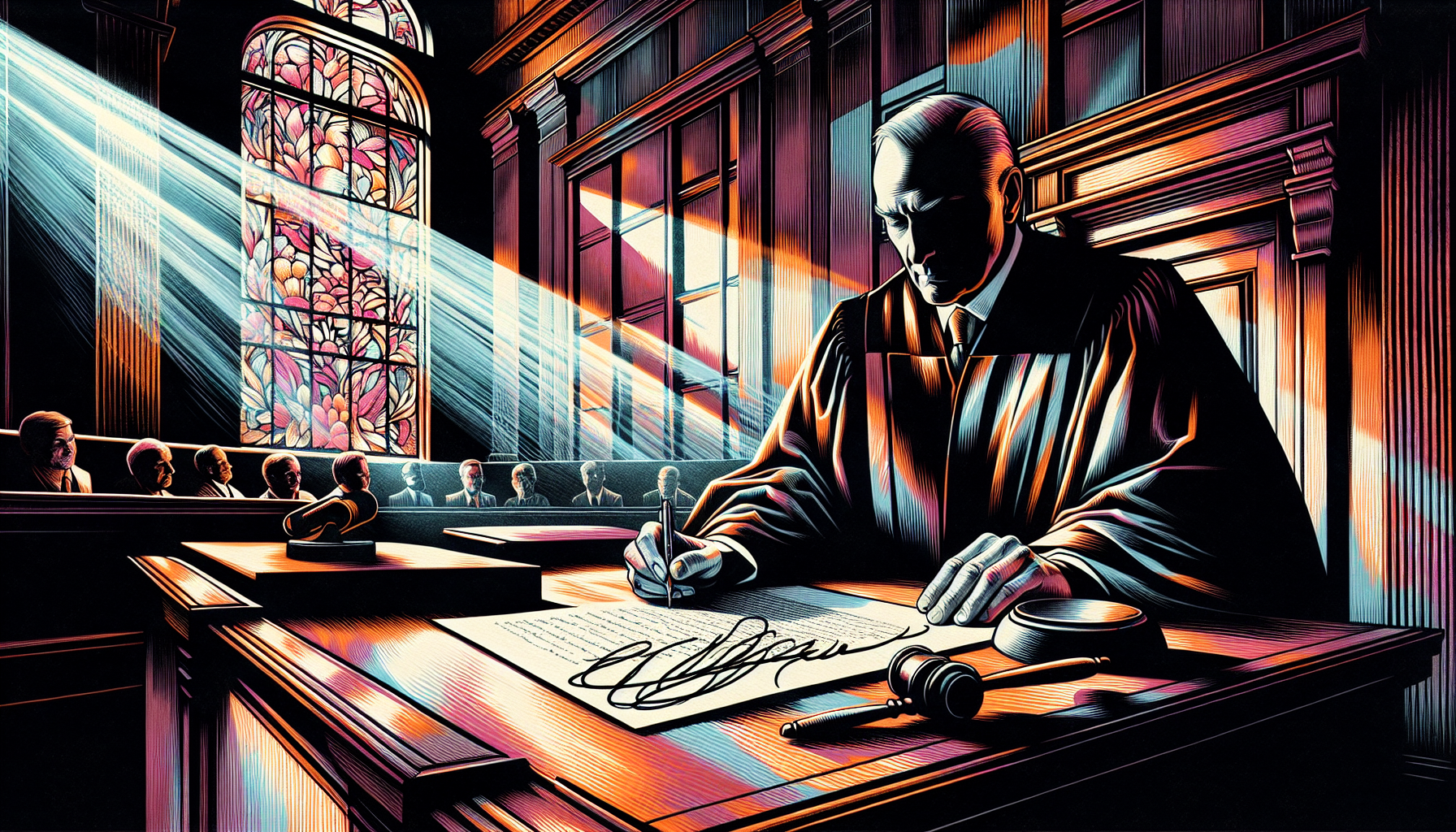
Imagine standing at the threshold of a new beginning, the chapters of a shared past neatly closed behind you. This is the profound reality a divorce decree represents—a legally binding document that officially terminates a marriage and outlines the terms of separation. Signed by a presiding judge and embossed with the court’s seal, it serves as the final judgment in the dissolution of a marital union.
The divorce process can be complex and emotionally taxing, but the outcome rests upon this important legal document. It encompasses basic information such as the date of marriage dissolution, the responsibilities of each spouse, and arrangements regarding children, property, and support. It is the document that allows individuals to reclaim their maiden name, divide assets, and, if necessary, file for support enforcement.
However, a divorce decree is more than just a legal formality. It is a new foundation upon which former spouses can begin to build their separate futures. It’s the proof needed to move forward, to change one’s marital status, and to ensure that the agreements made during the divorce are upheld. It’s the document that turns the page and starts the next chapter of life.
Understanding a Divorce Decree
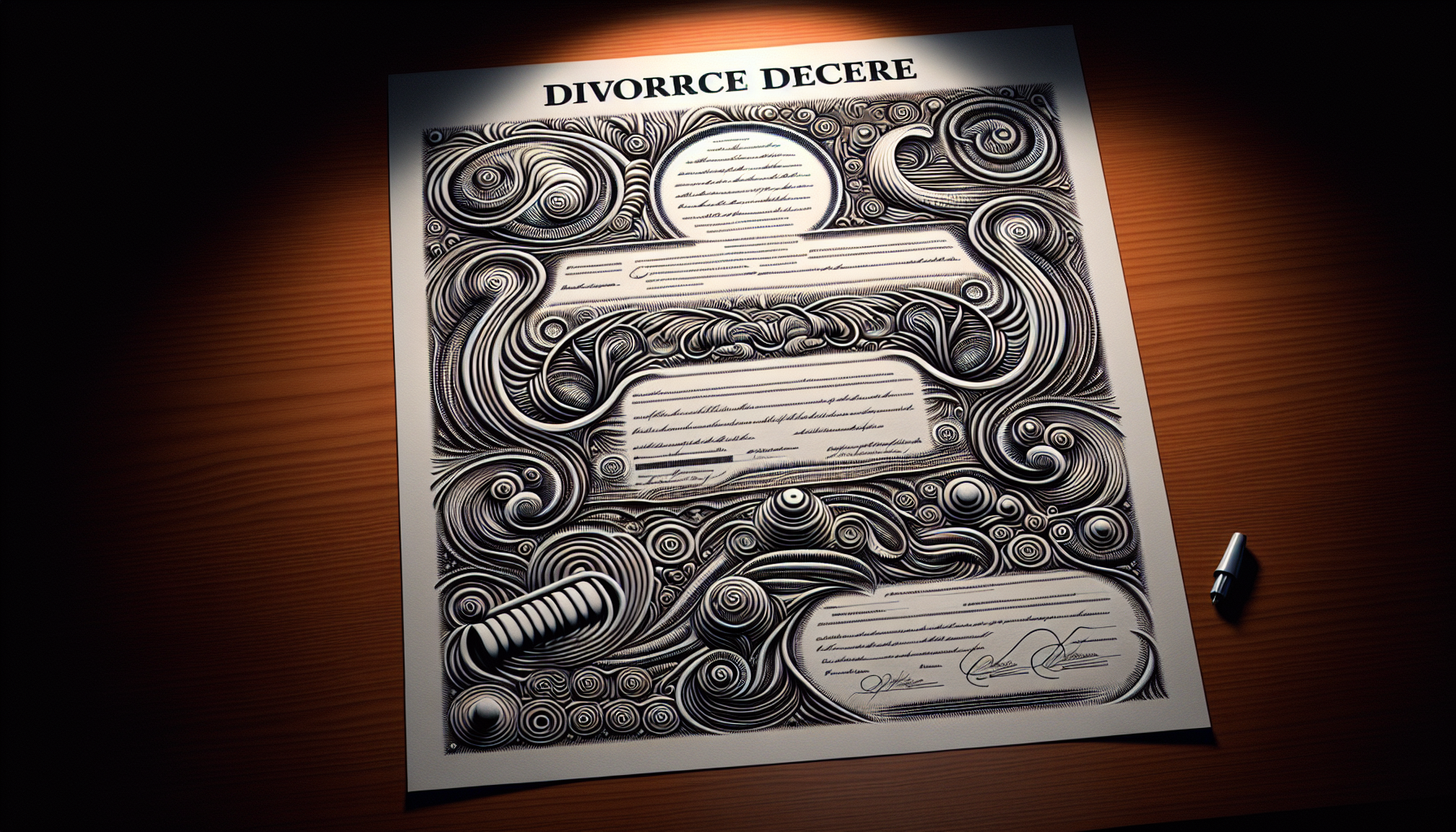
A divorce decree is the compass that navigates the tumultuous seas of the divorce process, guiding both parties to the shores of resolution. It is a comprehensive legal document that not only signifies the end of a marriage but also contains the details of the divorce judgment—encompassing everything from:
property division
child custody
child support
spousal support
visitation rights
Once the divorce occurred and the decree is signed, the marriage officially ends, and both individuals cease to be legally bound as spouses.
This legal document is the culmination of court proceedings, reflecting the final decisions made after potentially arduous negotiations or court orders. It sets out the future course for both individuals, detailing how marital assets are to be divided, the specifics of child custody arrangements, and how much support one party may be required to pay to the other. The divorce decree is essential, as it is the legal proof required to enforce these decisions should one party fail to comply.
With the gravity of its contents, one might wonder how it differs from other documents associated with the end of a marriage. The divorce certificate, often confused with the decree, serves a different purpose. Let’s explore the nuances that distinguish these two important documents.
Divorce Decree vs. Divorce Certificate
In the aftermath of a divorce, two key documents emerge: the divorce decree and the divorce certificate. While they both relate to the same event—the dissolution of a marriage—their purposes and the details they contain differ markedly.
The divorce decree is:
the legal document issued by a court to officially end a marriage
a testament to the divorce process, detailing the rights and responsibilities of each party
legally binding.
The divorce certificate, on the other hand, is a simple document that serves as proof that a divorce has occurred. Issued by the state’s vital records office or bureau of vital statistics, divorce certificates are typically used for more straightforward purposes such as changing your name or updating legal documents post-divorce.
One might consider the divorce decree as a comprehensive record of the divorce judgment, while the divorce certificate is akin to a summary—a certified copy that confirms the divorce is final. While the decree is essential for legal matters such as property division and child custody, the certificate is often sufficient for personal records and remarrying.
Understanding the role each document plays is crucial in navigating post-divorce life.
What Information Is Included in a Divorce Decree?
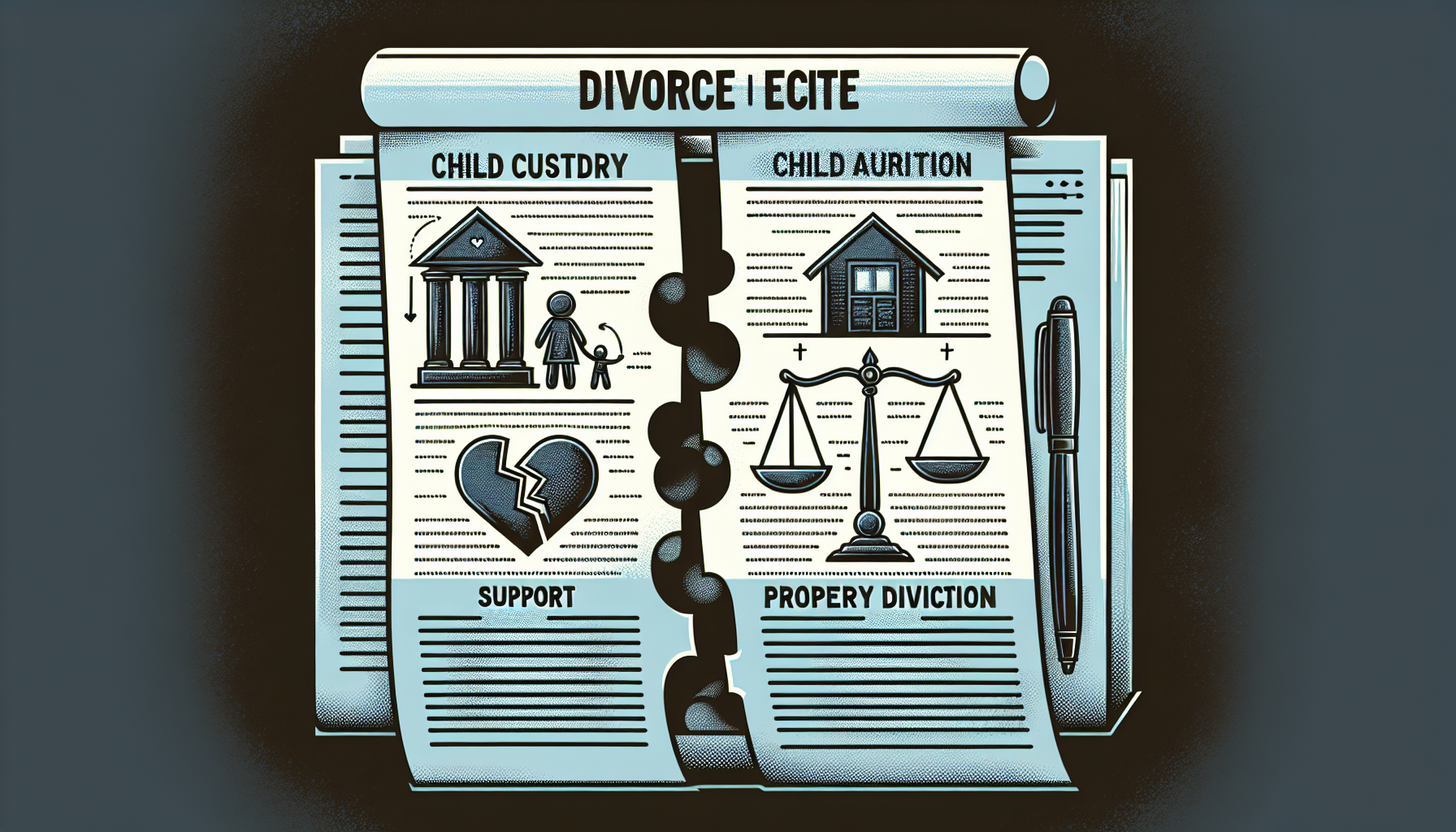
Embarking on the journey of understanding a divorce decree, one may wonder about the specific details etched into its pages. This document is a tapestry woven with various strands of information, all critical to the newly divorced individuals’ futures.
Central to the decree are the terms of child custody and support, providing structure and stability for the children affected by the divorce. The decree lays out visitation schedules, living arrangements, and financial support required to maintain the well-being of the children involved. Additionally, spousal support is detailed, with clear payment schedules to ensure both parties can move forward with financial security.
Beyond children and finances, the decree spells out the division of marital property and debts, allowing both individuals to understand their respective responsibilities and rights. It may also include other relevant matters such as visitation rights, terms of the divorce, and even name changes, painting a complete picture of life post-marriage.
Legally Binding Terms
The ink that marks the pages of a divorce decree carries the weight of the law. The terms within it are not mere suggestions but legally binding conditions that must be adhered to by both parties. Failure to follow the court-ordered obligations laid out in the decree, such as child or spousal support payments, can attract legal consequences and possibly, court intervention.
When one speaks of the ‘binding nature’ of the decree, it implies that the arrangements within—be it custody agreements or asset division—are enforceable by law. Ignoring these stipulations can lead to an array of legal remedies sought by the aggrieved ex-spouse, including wage garnishments or the involvement of child support agencies.
It is vital for both parties to understand that the divorce decree is the final say in their shared narrative. Any deviation or neglect of its terms is not just a breach of a personal agreement but a violation of a court order that could result in serious legal ramifications.
Obtaining a Copy of Your Divorce Decree
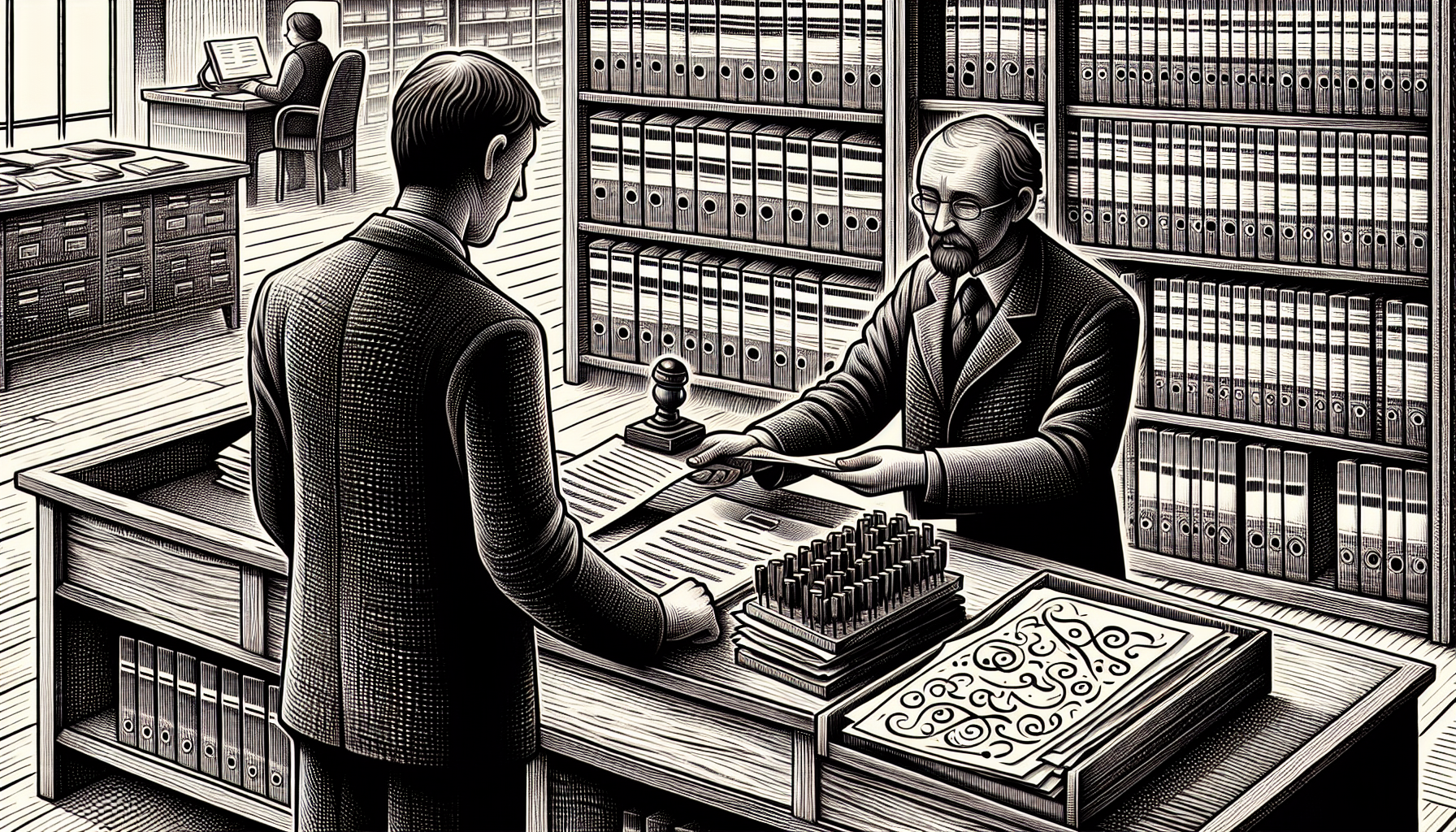
Navigating life post-divorce often necessitates revisiting the chapters of the past, and sometimes, that means obtaining a copy of your divorce decree. Whether for legal verification or personal closure, knowing how to retrieve this document is a practical necessity.
Securing a copy of your divorce decree typically involves the following steps:
Reach out to the court clerk’s office where the divorce was finalized.
Be prepared to provide basic information, such as the names of the parties involved and the date of the divorce.
In some cases, you may need to pay a fee for the service.
The court clerk’s office will provide you with details on how to order a copy, including the cost and any required information.
Once you have completed the necessary steps, you will receive a certified copy of your divorce decree.
Importance of a Divorce Decree
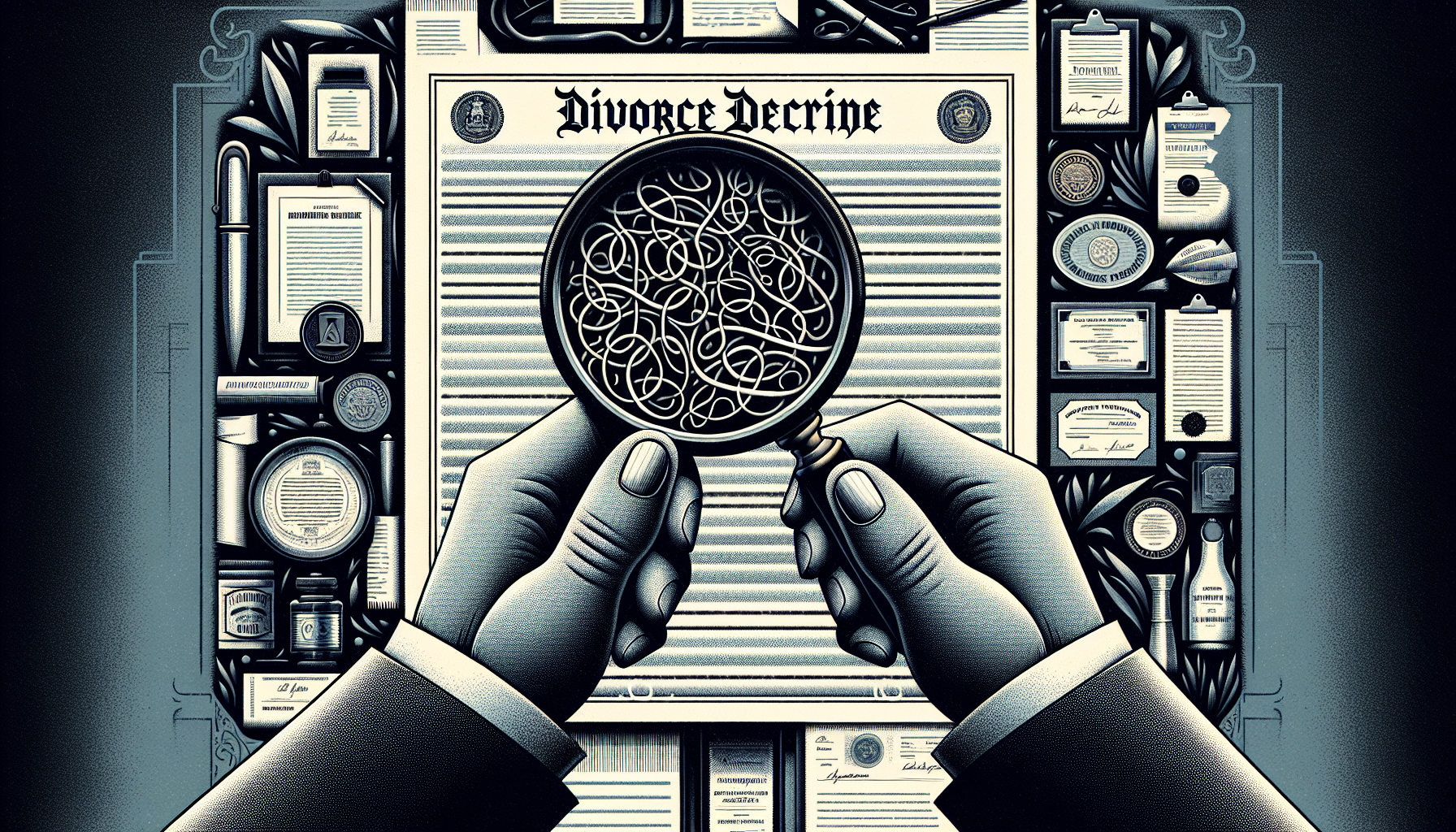
A divorce decree stands as a sentinel at the gates of one’s new life, offering the legal proof required to pass through unimpeded. It is the document that firmly establishes the end of a marriage, allowing individuals to:
redefine their lives on official records and documents
change their last name
update their identification documents
make changes to their estate plan
apply for government benefits as a single individual
The significance of a divorce decree extends beyond legal realms; it marks a pivotal turning point, enabling the renewal of personal identity and the restructuring of societal status. Without it, one’s ability to move forward and embrace the future remains in limbo, tethered to a past that is no longer relevant.
Impact on Financial Matters
The dissolution of a marriage brings with it a redistribution of financial landscapes. A divorce decree delineates this new terrain, clarifying which assets and debts belong to whom as individuals embark on their separate journeys.
Post-divorce, each spouse is responsible for the debts they incurred during the marriage, ensuring that creditors cannot pursue the other party’s separate assets. This financial autonomy is crucial for both individuals to establish their independence and rebuild their creditworthiness. In some states, like California, the decree will be explicit about how community property and debts are to be divided, which plays a significant role in each party’s financial planning and security post-divorce.
Moreover, the decree also addresses attorney fees and costs, ensuring that the financial obligations of the divorce itself are settled in a clear and legally binding manner. This allows both parties to close the chapter on their shared fiscal responsibilities and to open a new page on their personal financial narratives.
Legal Help With Divorce Decrees
Embarking on the voyage of divorce without a seasoned navigator can lead to uncharted waters. This is where the expertise of a divorce attorney becomes invaluable. They serve as both a guide and a protector, ensuring that your rights are preserved throughout the divorce process and beyond.
Legal assistance becomes particularly crucial when navigating the complexities of divorce decrees. This is especially true if court orders are ignored or misunderstood. An attorney can help clarify rights and remedies, offering a beacon of clarity in what might otherwise be a fog of legal confusion.
In certain jurisdictions, such as California, the intricacies of obtaining a divorce decree are compounded by state-specific requirements, including residency stipulations. Legal help ensures that all procedural and substantive requirements are met, smoothing the path to obtaining your decree and safeguarding your interests every step of the way.
Post-Divorce Decree Actions
Once the finality of a divorce decree is grasped, it is imperative to take proactive steps to ensure that its terms are honored. This involves:
Updating your legal documents, such as your will and insurance policies, to reflect your current status and intentions.
If a name change is part of your decree, it’s time to embark on the journey of updating your IDs and official records.
Closing joint credit accounts and informing your employer of the change in your tax status are measures that safeguard your financial independence and ensure that you are compliant with the decree’s stipulations.
Life, however, is not static, and sometimes circumstances change, rendering the original terms of the decree impractical or unjust. Should this occur, it is within your rights to seek the court’s help to revise these arrangements, ensuring that they remain fair and feasible in light of your current situation.
Summary
As we close the book on the intricacies of divorce decrees, we reflect on the importance of this document as a cornerstone of the divorce process. It is the blueprint for future interactions between former spouses, outlining the responsibilities and rights of each party in a legally binding manner. The decree is more than just a piece of paper; it is a vessel of transformation, enabling individuals to move forward with their lives, both legally and personally.
Let this compendium of knowledge serve as a beacon, guiding you through the sometimes tumultuous waters of divorce. With the right understanding and actions, the divorce decree can be the catalyst for a fresh start, empowering you to rebuild your life on a foundation of clarity and certainty.
Frequently Asked Questions
What is the difference between a divorce decree and a divorce certificate?
The main difference between a divorce decree and a divorce certificate is that the decree is a detailed legal document outlining the terms of the divorce and issued by a court, while the certificate is a simpler document serving as proof of the divorce and issued by the state’s vital statistics office.
How can I obtain a copy of my divorce decree?
To obtain a copy of your divorce decree, you should contact the court clerk’s office or the state’s vital records office where the divorce was finalized. It may require providing identification, divorce details, and potentially paying a fee.
Why is a divorce decree important?
A divorce decree is important because it serves as legal proof of the termination of a marriage and outlines the agreed-upon terms, including asset division and child custody arrangements, and is necessary for changing marital status on official documents and for enforcing terms if disputes arise.
What should I do if my ex-spouse is not complying with the terms of the divorce decree?
Seeking legal help is the best option if your ex-spouse is not complying with the terms of the divorce decree. The court has the authority to enforce the decree and impose penalties to ensure compliance.
Can the terms of a divorce decree be changed after it is signed?
Yes, the terms of a divorce decree can be changed after it is signed, provided there are significant changes in circumstances. It is possible to petition the court to review and potentially revise the arrangements.


